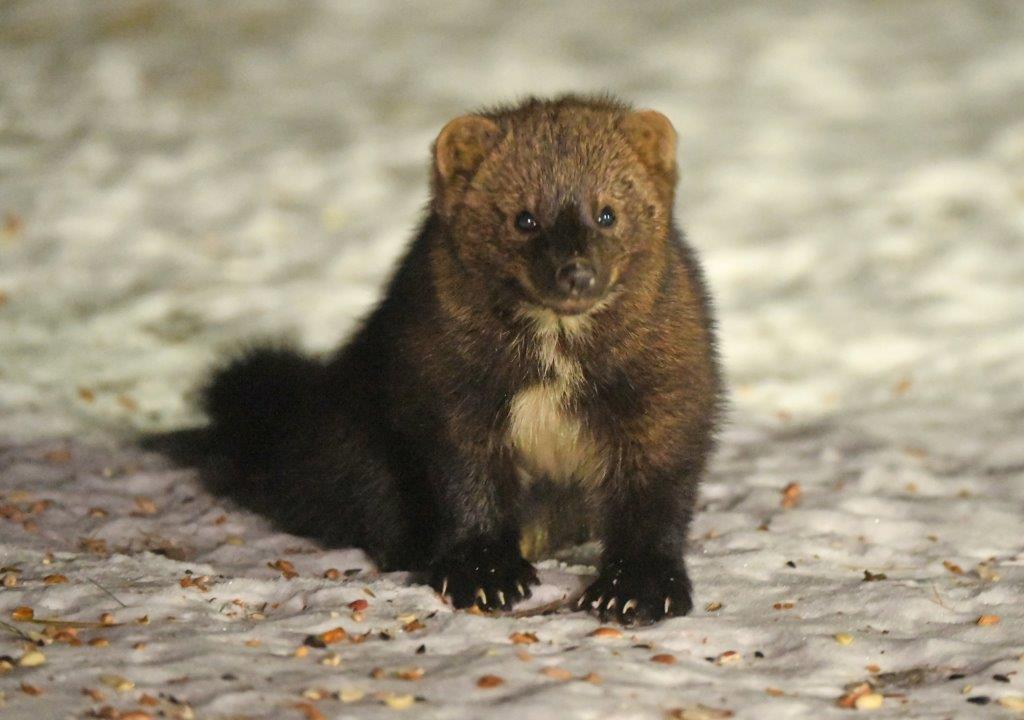The Usual Suspects - UPDATE February 18, 2024

Red fox male
The beautiful red fox is coming as usual again, but his entrance yesterday morning was less than polite, flying through the air in a long leap targeting a mink that quickly ducked into a safe niche. The fox turned toward chicken meat on the deck but didn’t take it. He looked longingly at me through the glass door and it dawned on me. I grabbed the container of muffins, grabbed a handful that he eyed as I opened the door and tossed one to him. He chewed it down in his usual way with his nose tilted up, eyes nearly closed, totally engrossed. He took a second one, went down the steps with it and that was enough for that visit. I wanted to see more of the mink, but he wasn’t ready to come out. A half hour later, he was still lounging in his niche even when I tossed pieces close to the entrance. I missed his exit sometime later.

Redpoll with siskins
Common redpoll
Common redpoll

Early that morning, the lone redpoll joined the pine siskin’s breakfast circle, but the picture was poor in the early light. I don’t know how she could have known what I wanted, but she nicely came back when it was sunny and posed for a portrait, looking very different in the sun.
Fisher male
Fisher male

Today, at 2:33 PM, the big male fisher took his turn at the chicken, hungrily chewing down pieces even though I was visible in the window clicking the camera.

Fisher male Fisher male

Fisher male
At 7:14 PM, the fox came, took a couple muffins and left sooner than usual. Within minutes the fisher appeared, ate a bit, and headed down his tree. Wondering where he went, I looked out at the yard and learned something. This carnivore was busily eating something I didn’t know he would even eat, let alone seem to like. He was eating the deer’s peanuts and continued doing it as he also watched me in the living room window clicking the camera as is becoming common when he sees me. Again, different light made him look very different than he did earlier.
It was good to see them all.
Thank you for all you do,
Lynn Rogers, Biologist, Wildlife Research Institute and North American Bear Center

 Author
Topic: Jewel and her cubs (Read 2361798 times)
Author
Topic: Jewel and her cubs (Read 2361798 times)
